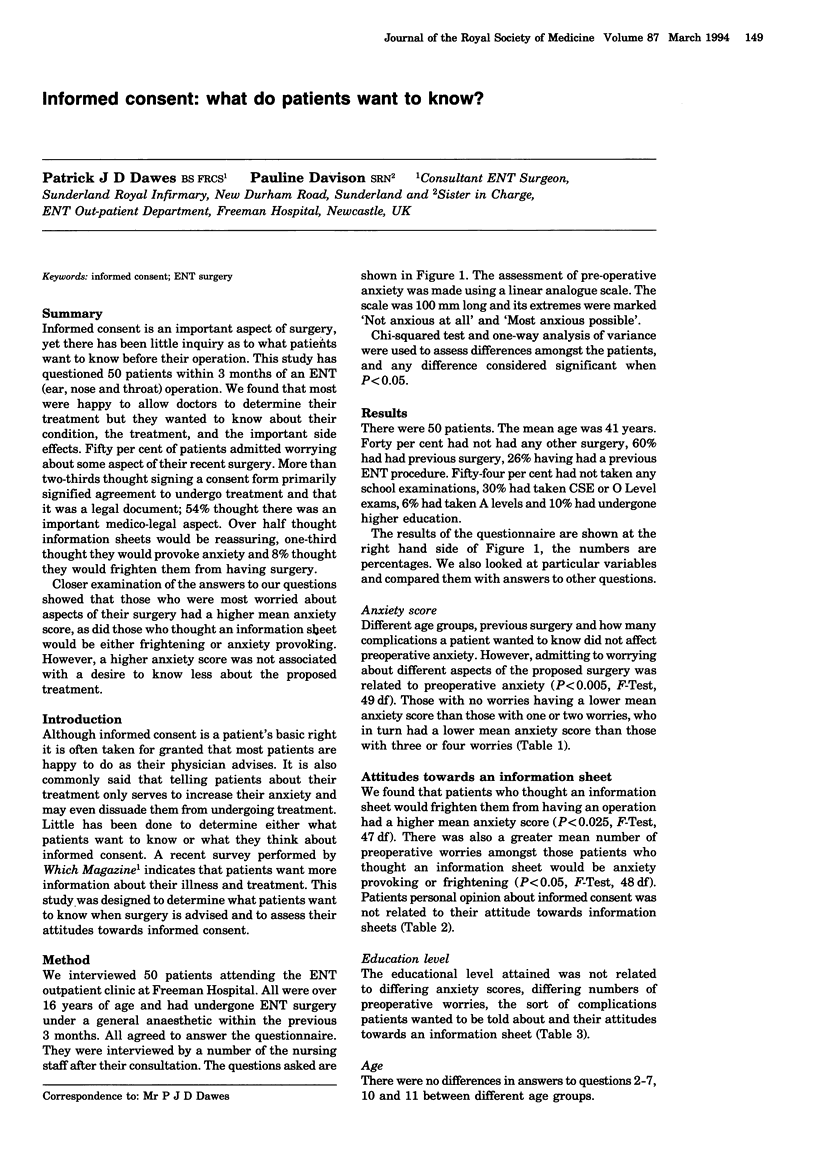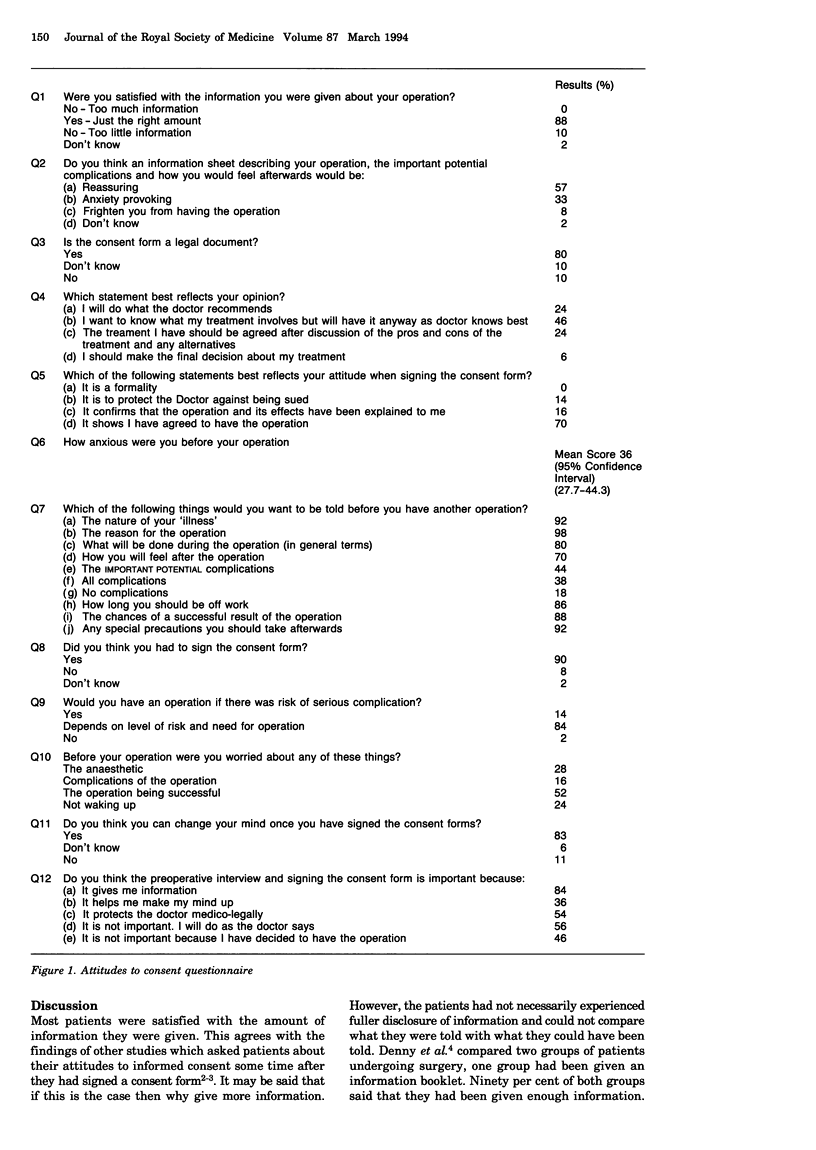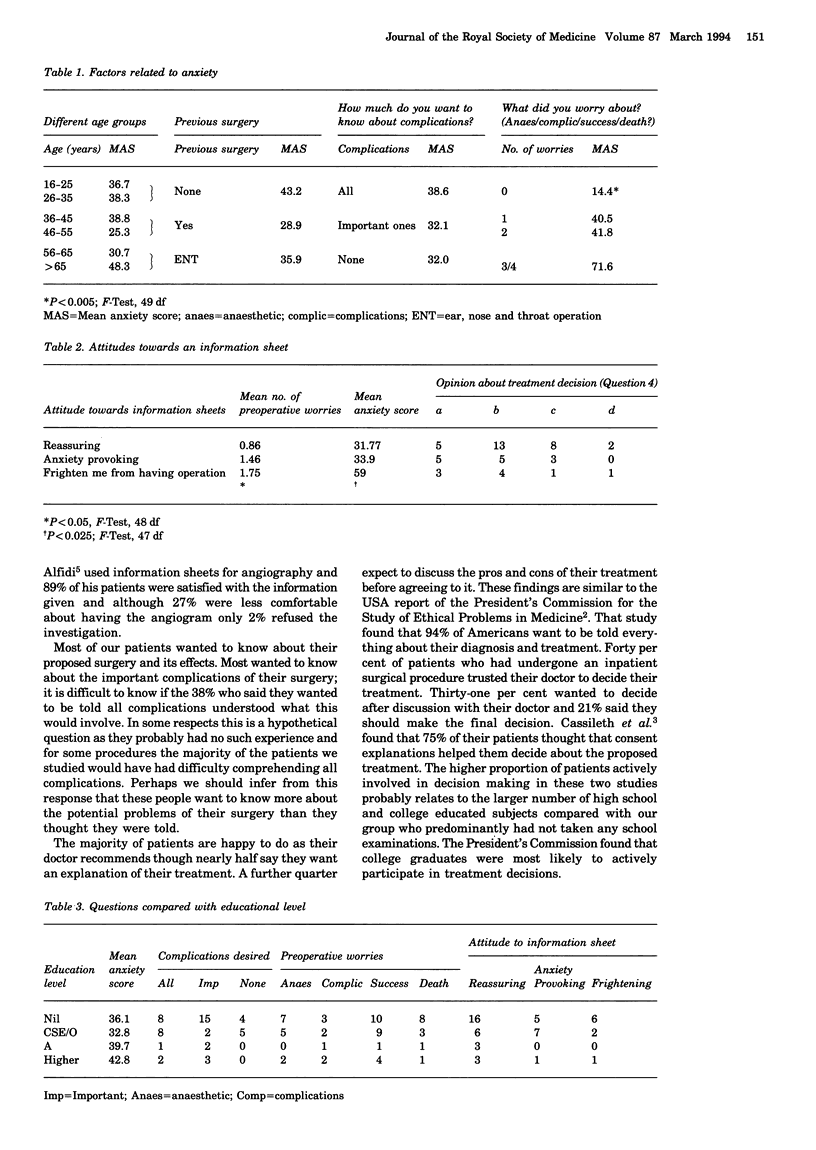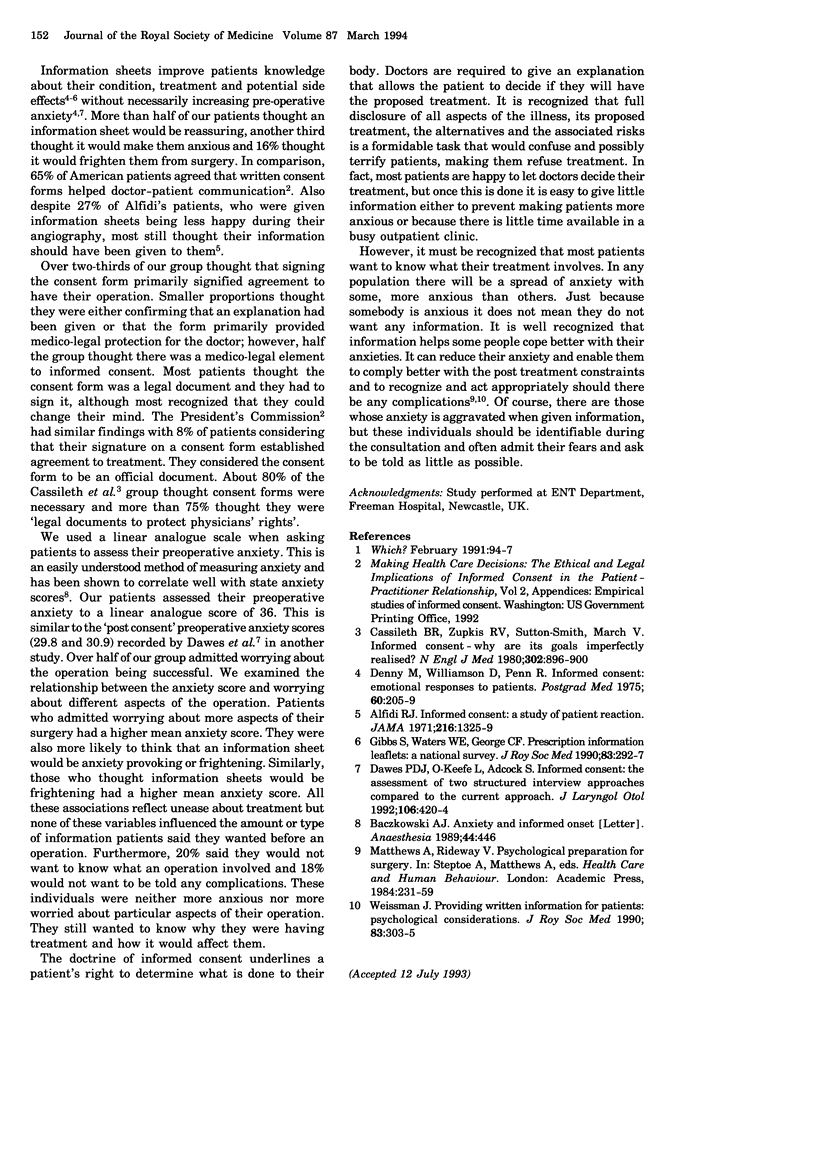Abstract
Informed consent is an important aspect of surgery, yet there has been little inquiry as to what patients want to know before their operation. This study has questioned 50 patients within 3 months of an ENT (ear, nose and throat) operation. We found that most were happy to allow doctors to determine their treatment but they wanted to know about their condition, the treatment, and the important side effects. Fifty per cent of patients admitted worrying about some aspect of their recent surgery. More than two-thirds thought signing a consent form primarily signified agreement to undergo treatment and that it was a legal document; 54% thought there was an important medico-legal aspect. Over half thought information sheets would be reassuring, one-third thought they would provoke anxiety and 8% thought they would frighten them from having surgery. Closer examination of the answers to our questions showed that those who were most worried about aspects of their surgery had a higher mean anxiety score, as did those who thought an information sheet would be either frightening or anxiety provoking. However, a higher anxiety score was not associated with a desire to know less about the proposed treatment.
Full text
PDF



Selected References
These references are in PubMed. This may not be the complete list of references from this article.
- Alfidi R. J. Informed consent. A study of patient reaction. JAMA. 1971 May 24;216(8):1325–1329. doi: 10.1001/jama.216.8.1325. [DOI] [PubMed] [Google Scholar]
- Baczkowski A. J. Anxiety and informed consent. Anaesthesia. 1989 May;44(5):446–446. doi: 10.1111/j.1365-2044.1989.tb11354.x. [DOI] [PubMed] [Google Scholar]
- Cassileth B. R., Zupkis R. V., Sutton-Smith K., March V. Informed consent -- why are its goals imperfectly realized? N Engl J Med. 1980 Apr 17;302(16):896–900. doi: 10.1056/NEJM198004173021605. [DOI] [PubMed] [Google Scholar]
- Dawes P. J., O'Keefe L., Adcock S. Informed consent: the assessment of two structured interview approaches compared to the current approach. J Laryngol Otol. 1992 May;106(5):420–424. doi: 10.1017/s0022215100119711. [DOI] [PubMed] [Google Scholar]
- Denney M. K., Williamson D., Penn R. Community medicine. Informed consent. Emotional responses of patients. Postgrad Med. 1976 Nov;60(5):205–209. doi: 10.1080/00325481.1976.11714489. [DOI] [PubMed] [Google Scholar]
- Gibbs S., Waters W. E., George C. F. Prescription information leaflets: a national survey. J R Soc Med. 1990 May;83(5):292–297. doi: 10.1177/014107689008300505. [DOI] [PMC free article] [PubMed] [Google Scholar]
- Weinman J. Providing written information for patients: psychological considerations. J R Soc Med. 1990 May;83(5):303–305. doi: 10.1177/014107689008300508. [DOI] [PMC free article] [PubMed] [Google Scholar]


